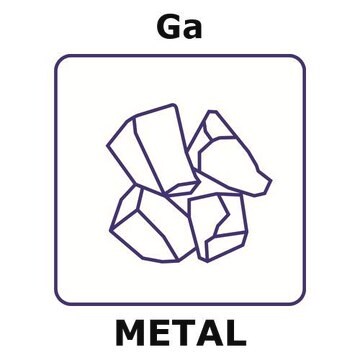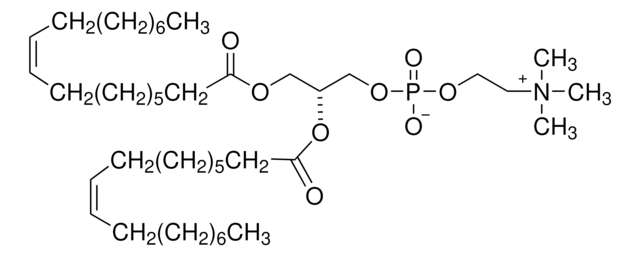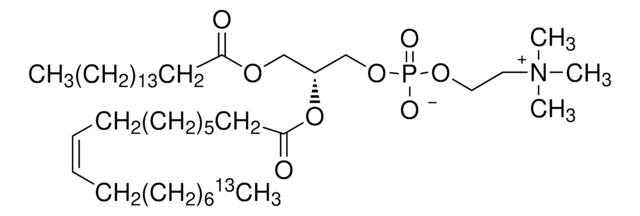ABE2939
Anti-PrimPol
Synonym(e):
DNA-directed primase/polymerase protein, hPrimpol1;Coiled-coil domain-containing protein 111
About This Item
Empfohlene Produkte
Biologische Quelle
rabbit
Qualitätsniveau
Antikörperform
purified antibody
Antikörper-Produkttyp
primary antibodies
Klon
N/A, polyclonal
Mol-Gew.
calculated mol wt 64.41 kDa
observed mol wt ~65 kDa
Aufgereinigt durch
affinity chromatography
Speziesreaktivität
human
Verpackung
antibody small pack of 100 μg
Methode(n)
western blot: suitable
Isotyp
IgG
Epitopsequenz
C-terminal
Protein-ID-Hinterlegungsnummer
UniProt-Hinterlegungsnummer
Lagertemp.
2-8°C
Angaben zum Gen
human ... PRIMPOL(201973)
Allgemeine Beschreibung
Spezifität
Immunogen
Anwendung
Evaluated by Western Blotting in U2OS cell lysate.
Western Blotting Analysis (WB): A 1:1,000 dilution of this antibody detected PrimPol lysate from U2OS cells, but not in cells with PrimPol knockout.
Tested applications
Fluorescence Activated Cell Sorting (FACS): A representative lot detected PrimPol in I Fluorescence Activated Cell Sorting applications (Tirman S., et al (2021). Mol Cell. 81(19); 4026-4040).
Immunocytochemistry Analysis: A representative lot detected PrimPol in Immunocytochemistry application (Tirman S., et al (2021). Mol Cell. 81(19); 4026-4040).
Note: Actual optimal working dilutions must be determined by end user as specimens, and experimental conditions may vary with the end user.
Physikalische Form
Lagerung und Haltbarkeit
Sonstige Hinweise
Haftungsausschluss
Sie haben nicht das passende Produkt gefunden?
Probieren Sie unser Produkt-Auswahlhilfe. aus.
Lagerklassenschlüssel
13 - Non Combustible Solids
WGK
WGK 1
Flammpunkt (°F)
Not applicable
Flammpunkt (°C)
Not applicable
Analysenzertifikate (COA)
Suchen Sie nach Analysenzertifikate (COA), indem Sie die Lot-/Chargennummer des Produkts eingeben. Lot- und Chargennummern sind auf dem Produktetikett hinter den Wörtern ‘Lot’ oder ‘Batch’ (Lot oder Charge) zu finden.
Besitzen Sie dieses Produkt bereits?
In der Dokumentenbibliothek finden Sie die Dokumentation zu den Produkten, die Sie kürzlich erworben haben.
Unser Team von Wissenschaftlern verfügt über Erfahrung in allen Forschungsbereichen einschließlich Life Science, Materialwissenschaften, chemischer Synthese, Chromatographie, Analytik und vielen mehr..
Setzen Sie sich mit dem technischen Dienst in Verbindung.








